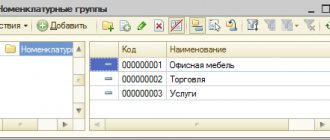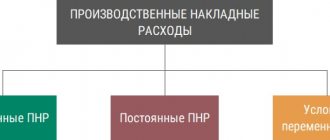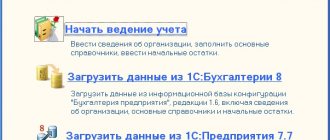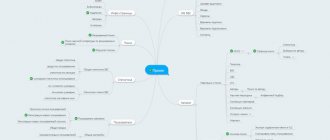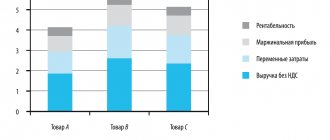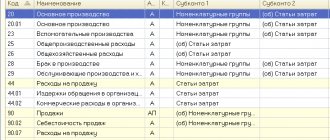Others include costs for certification of products and services, as well as for declaration of conformity with the participation of a third party (subclause 2, clause 1, article 264 of the Tax Code of the Russian Federation).
Confirmation of compliance on the territory of Russia can be voluntary or mandatory.
Voluntary confirmation of conformity is carried out in the form of voluntary certification.
Mandatory confirmation of compliance is carried out in the following forms:
- adoption of a declaration of conformity (hereinafter referred to as the declaration of conformity);
- mandatory certification (Article 20 of the Federal Law of December 27, 2002 No. 184-FZ “On Technical Regulation”).
Reference
A certificate of conformity is understood as a document certifying the compliance of an object with the requirements of technical regulations, provisions of standards, codes of practice or terms of contracts.
Mandatory confirmation of conformity is carried out only in relation to products released into circulation on the territory of the Russian Federation.
The unified list of products subject to mandatory certification and the unified list of products, confirmation of conformity of which is carried out in the form of a declaration of conformity, were approved by Decree of the Government of the Russian Federation dated December 1, 2009 No. 982.
Documents confirming conformity received outside Russia can only be recognized in accordance with international treaties. Thus, expenses associated with obtaining certificates of conformity of products abroad will be taken into account as expenses only when these certificates are recognized in accordance with international treaties of the Russian Federation (letter of the Ministry of Finance of Russia dated November 18, 2013 No. 03-11-06/1/49398*) .
Costs incurred for mandatory and voluntary certification of products and services, made in the prescribed manner, are included in expenses for profit tax purposes during the period for which the certificate is issued (letter of the Ministry of Finance of Russia dated March 18, 2013 No. 03-03-06/1/ 8186).
A similar issue regarding accounting for the costs of issuing certificates of origin of goods on the basis of subparagraph 2 of paragraph 1 of Article 264 of the Tax Code of the Russian Federation was considered in the resolution of the Federal Antimonopoly Service of the North Caucasus District dated April 22, 2013 No. A32-23147/2011.
The inspectorate considered that, based on subparagraph 2 of paragraph 1 of Article 264 of the Tax Code of the Russian Federation, the cost of issuing certificates of origin of goods cannot be classified as expenses that reduce taxable profit. Since this provision provides that other costs associated with production and sales include costs for certification of products and services.
The inspectors pointed out that the company did not have the right to include the costs of issuing certificates of origin of goods on the basis that it used the certificates when performing customs formalities during transit under contracts.
However, the company confirmed the validity of issuing certificates of origin as part of the fulfillment of contractual obligations with a foreign counterparty, presenting agreements, contracts with the counterparty, reports on the use of certificates of origin, acts of acceptance and transfer of services provided, acts, invoices, journals of transactions on account 20, 60 subaccount “Counterparties. Certificate maintenance."
Therefore, the judges determined that for profit tax purposes, certification costs can be recognized not only in relation to products produced by the taxpayer itself. After all, subparagraph 2 of paragraph 1 of Article 264 of the Tax Code of the Russian Federation does not contain restrictions on the use exclusively in cases of own production of goods.
Cost structure for certification
There are indirect and direct costs of certification. Indirect ones involve spending on quality assurance. This:
- Elimination of detected defects.
- Quality control.
- Measures to prevent defects.
There are also direct costs for certification. They are specified in paragraph 4.2 of the Certification Rules, approved by Resolution No. 44. Costs include the following:
- Work carried out by an accredited center.
- Samples needed for testing.
- Expenses for the tests themselves, which are carried out in the laboratory.
- Checking the state of production and its certification.
- Checks performed during control.
- Review of the application.
- Costs for storing and packaging samples that will be sent to the laboratory.
All expenses considered can be reflected in the costs of certification.
Voluntary confirmation of compliance
Voluntary confirmation of conformity is carried out to establish compliance with national standards, organizational standards, voluntary certification systems, and contract terms. The object of voluntary confirmation of conformity is products, processes of production, operation, storage, transportation, disposal, work and services, as well as other objects for which standards, voluntary certification systems and contracts establish requirements.
Voluntary confirmation of conformity is carried out in the form of voluntary certification at the initiative of the applicant under the terms of an agreement between him and the certification body (Article 21 of Law No. 184-FZ). At the same time, the certification body confirms the conformity of objects of voluntary confirmation of conformity and issues certificates of conformity for objects that have passed it.
Objects certified in the voluntary certification system may be marked with the sign of conformity of the voluntary certification system. The procedure for applying such a mark of conformity is established by the rules of the relevant voluntary certification system.
The application of the mark of conformity to the national standard is carried out by the applicant on a voluntary basis in any way convenient for the applicant in the manner established by the national standardization body.
A number of decrees of the State Standard of Russia have approved regulatory documents regarding certification:
- Rules for certification in the Russian Federation - decree dated 10.05. 2000 No. 26;
- The procedure for product certification in the Russian Federation is by Decree No. 15 dated September 21, 1994;
- Rules for certification “Payment for work on mandatory certification of products and services” - Resolution No. 44 dated August 23, 1999.
Tax accounting
Certification costs require payment of VAT and income tax.
Features of VAT calculation
The company has the right to reduce the total amount of VAT by the amount of tax that was presented to the company when purchasing goods or services for the execution of transactions considered subject to taxation. The deduction is carried out on the basis of invoices issued by product sellers. An invoice can only be issued after the goods have been accounted for. A deduction can be made in respect of VAT amounts accrued on certification expenses if these conditions are simultaneously met:
- The corresponding services were recorded in accounting under DT account 97.
- Accounting entries were made based on existing primary documents.
- There is an invoice that is issued in accordance with the law.
- Certification is needed for activities that will be subject to VAT.
The transfer of product samples to the laboratory for testing will not be subject to VAT. This is due to the fact that this procedure does not involve the sale of products. The company is not deprived of ownership of the designs. The subject of taxation is the transfer of products for the needs of the company, if expenses on the goods are not deductible when determining income tax. In this situation, you need to take into account expenses when assessing taxes.
If a company stops producing products before the expiration of the document of compliance, the VAT deduction will not be restored. This is due to the fact that termination of issue with a valid certificate is not included in the list of situations in which VAT can be restored (clause 3 of Article 170 of the Tax Code of the Russian Federation).
Income tax
Certification costs must be taken into account in the structure of other costs arising during production and sales. In this case, the type of certification being carried out is not important: voluntary or compulsory. Related expenses reduce taxable profit only when the requirements of paragraph 1 of Article 252 of the Tax Code of the Russian Federation are met.
For the purpose of taxation of profits, expenses for a voluntary procedure are taken into account only when the event is carried out in the form of quality assurance on the basis of the law on technical regulation.
Voluntary certification cannot duplicate a mandatory event. The exception is inspections during which there is an analysis of various parties.
A company can include expenses for samples provided to the laboratory as expenses that reduce taxable income. They are needed for testing to determine compliance with the requirements. Sample costs include the cost of the sample itself, as well as the costs of storing and packaging it.
The possibility of reducing taxable income is due to the fact that samples are likely to be damaged during testing. That is, it will not be possible to implement them in the future. The corresponding conclusion was made by the FAS in a resolution dated January 23, 2007. If the samples were damaged, it is necessary to draw up an act for their write-off. The corresponding position is given in the letter of the Department of Tax Administration dated April 23, 2001.
IMPORTANT! When carrying out certification, even if it is mandatory, you need to pay a fee. It cannot be included in expenses. The amount of the duty reduces the profit subject to tax.
Taxation will be determined by what methods the company uses:
- If a company uses the cash method, certification costs are recognized only after they are actually incurred. For example, research costs are recognized only after actual payment for laboratory services has occurred.
- If a company uses the accrual method, expenses are recognized as taxable in the period in which they are incurred. It does not matter when exactly the payment occurred.
The letter of the Ministry of Finance No. 03-03-02/268 states that expenses must be distributed throughout the validity period of the certificate. If the company ceases issuing the document before the document expires, the balance of expenses that have not been transferred is recognized for tax purposes as a lump sum. However, gradual acceptance of spending is only one position. There is another one, according to which losses can be recognized at a time. In this case, there is no distribution among reporting periods. This position is confirmed by paragraphs. 2, paragraph 7 of Article 272 of the Tax Code of the Russian Federation.
Mandatory confirmation of compliance
Mandatory confirmation of conformity is carried out only in cases established by the relevant technical regulations, and solely for compliance with the requirements of the technical regulations. The object of mandatory confirmation of conformity can only be products released into circulation on the territory of the Russian Federation (Article 23 of Law No. 184-FZ).
Mandatory confirmation of conformity is carried out in the forms of acceptance of a declaration of conformity and mandatory certification.
Declaration of conformity can be carried out by:
- accepting a declaration of conformity based on your own evidence;
- accepting a declaration of conformity on the basis of one’s own evidence, evidence obtained with the participation of a certification body and (or) an accredited testing laboratory (center) (Article 24 of Law No. 184-FZ).
When declaring conformity on the basis of its own evidence, the applicant independently generates evidentiary materials in order to confirm product compliance with the requirements of technical regulations. Technical documentation, results of own research (tests) and measurements and (or) other documents that served as a reasoned basis for confirming product compliance with the requirements of technical regulations are used as evidentiary materials. The composition of evidentiary materials is determined by the relevant technical regulations.
When declaring compliance on the basis of its own evidence and evidence obtained with the participation of a third party, the applicant, at his choice, in addition to his own evidence formed in the above order:
- includes in evidentiary materials protocols of studies (tests) and measurements carried out in an accredited testing laboratory (center);
- provides a quality system certificate (which provides for control (supervision) of the certification body that issued it) over the object of certification.
A quality system certificate can be used as part of evidence when accepting a declaration of conformity for any product, except if for such products the technical regulations provide for another form of confirmation of conformity.
The declaration of conformity contains:
- name and location of the applicant;
- name and location of the manufacturer;
- information about the object of conformity assessment, allowing to identify this object;
- name of the technical regulation for compliance with the requirements of which the product is confirmed;
- indication of the conformity declaration scheme;
- the applicant’s statement about the safety of the product when used in accordance with its intended purpose and the applicant’s taking measures to ensure product compliance with the requirements of technical regulations;
- information about the studies (tests) and measurements carried out, the quality system certificate, as well as the documents that served as the basis for confirming product compliance with the requirements of technical regulations;
- validity period of the declaration of conformity;
- other information provided for by the relevant technical regulations.
A declaration of conformity drawn up in accordance with the established rules is subject to registration by the federal executive body for technical regulation within three days.
Mandatory certification is carried out by a certification body accredited in the manner established by the Government of the Russian Federation, on the basis of an agreement with the applicant. Certification schemes used to certify certain types of products are established by the relevant technical regulations. Product compliance with the requirements of technical regulations is confirmed by a certificate of conformity issued to the applicant by the certification body.
In addition to the stated items of the declaration of conformity, the certificate of conformity also contains the name and location of the certification body that issued it.
The Declaration of Conformity and the Certificate of Conformity have equal legal force regardless of the schemes for mandatory confirmation of conformity and are valid throughout the Russian Federation (clause 3 of Article 23 of Law No. 184-FZ). Their validity period is determined by the relevant technical regulations.
Research (testing) and measurements of products during mandatory certification are carried out by accredited testing laboratories (centers).
The list of goods subject to mandatory certification was approved by Decree of the Government of the Russian Federation dated August 13, 1997 No. 1013 (as amended on December 17, 2005 No. 775). Until February 2004, certain types of work and services were also subject to mandatory certification. Their list was given in the same resolution No. 1013. These included: maintenance and repair of vehicles, retail trade and catering services. However, by Government Decree No. 72 dated February 10, 2004, this list was declared invalid.
When importing into the territory of the Russian Federation products that are subject to mandatory confirmation of conformity, a declaration of conformity or a certificate of conformity or documents on their recognition are submitted to the customs authorities simultaneously with the customs declaration.
Documents confirming conformity, marks of conformity, research (test) and product measurement protocols received outside the Russian Federation can be recognized on the territory of Russia in accordance with international treaties of the Russian Federation (Article 30 of Law 184-FZ).
For the purposes of customs clearance of products, lists of products and foreign economic activities are approved by the Government of the Russian Federation on the basis of technical regulations. Letter No. 01-06/107 of the Federal Customs Service of Russia dated January 12, 2005 (as amended on December 29, 2005) provided a list of goods that require confirmation of mandatory certification upon release into the customs territory of the Russian Federation.
Costs for certification in accounting
Paragraph 4 of PBU 10/99 states that expenses in accounting are recognized either in the structure of expenses for the main forms of activity, or in the structure of other expenses. Expenses for the main form of activity include expenses associated with production and sales. Expenses for certification are included in this composition, since they are needed to establish compliance of the manufactured product with the requirements.
Expenses must be taken into account in the period in which they appeared. It does not matter when the actual payment occurred. Expenses that arose in the current reporting period, but are attributable to subsequent periods, are recorded in the structure of expenses of subsequent periods. They need to be written off. The write-off procedure is determined by the company itself.
Accounting entries
To record expenses for certification, these accounting entries are used:
- DT60 KT51. Payment for certification services based on an extract from a banking institution.
- DT97 KT43. Write-off of the cost of samples sent for research.
- DT97 KT60. Fixation in the expenses of subsequent periods of the cost of work for certification on the basis of an agreement with the center, an act of execution of work.
- DT19 KT60. Reflection of VAT on services.
- DT68 KT19. Purpose for VAT deduction.
Every month you need to record this wiring: DT20 KT97. Reflection of costs for certification in the cost structure of products.
If the company's accounting policy involves one-time reflection of expenses in tax accounting, this entry is used:
- DT68 KT77. Deferred tax liability.
- DT77 KT68. Repayment of obligation.
The last entry will be used every month for the duration of the certificate - 3 years. If there are no primary documents confirming expenses, then postings cannot be made.
Inexpensive certificates
Each organization decides for itself whether the costs of certification are significant for it or not from the point of view of its impact on financial results. As a reasonable criterion, you can use, for example, an indicator such as the share of certification costs in the cost of goods or products.
The materiality criterion must be enshrined in the accounting policy so that it is clear to inspectors, owners, and everyone else who will get acquainted with your statements why you take into account “certification” expenses one way and not another.
Minor amounts spent on any certification can be immediately written off to current sales expenses, guided by the principle of rationality.
By the way, in tax accounting, many organizations also immediately write off the cost of inexpensive certificates as other expenses. 2 p. 1 art. 264 Tax Code of the Russian Federation; Letter of the Ministry of Finance dated 03/01/2012 No. 03-03-06/1/111. Moreover, despite the fact that the Ministry of Finance often recommends extending it for the validity period of the certificate and Letters of the Ministry of Finance dated November 17, 2011 No. 03-03-06/1/764, dated May 25, 2011 No. 03-03-06/1/307.
